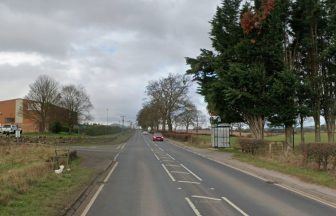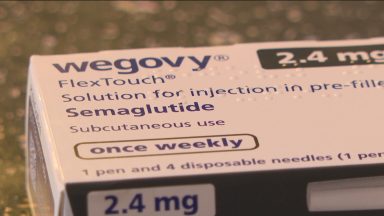The number of alcohol deaths in Scotland has fallen by more than a tenth since the introduction of minimum unit pricing (MUP), according to a new report.
Campaigners from Alcohol Focus Scotland hailed the policy as “truly life-saving”, adding the price should be increased to save more lives.
Public Health Scotland (PHS) say the 50p minimum charge – placed on each unit of alcohol in 2018 – has had a “positive impact”, with alcohol deaths down by 13.4% since the initiative came into effect.
The report by PHS estimates there were about 150 fewer deaths on average each year, and 400 fewer hospital admissions.
Alcohol Focus Scotland, along with 29 charities and medical organisations, are now calling on the Scottish Government to uprate the minimum unit price to at least 65p per unit.
The reported noted, however, evidence of negative consequences for those on low incomes who have well-established dependencies on alcohol.
The PHS report, which cited 40 independent studies, said there was “limited evidence” the scheme had reduced consumption among this group – and had even led to some prioritising spending their funds on alcohol rather than food.
But, at a population level, there had been no evidence of substantial negative impacts on social harms such as alcohol-related crime or illicit drug use, the report said.
Dr Alastair MacGilchrist, chair of expert clinician partnership at the Scottish Health Action on Alcohol Problems, said the effectiveness of MUP is being eroded year-on-year by the effect of inflation.
He said: “The current level of 50p was proposed when the legislation was first passed by the Scottish Parliament in 2012, over a decade ago, and it is essential to maintain and increase MUP’s effectiveness for the 50p level to be increased.
“MSPs must now act on the evidence and vote to keep MUP on our statute books and to uprate the level to at least 65p.
“Policy makers have a responsibility to protect and enhance our health by maintaining this life-saving policy.”
Based on retail sales, a 3% reduction in alcohol consumption was seen at a population level.
This was largely driven by cider and spirits sales in off-trade products which increased the most in price.
Clare Beeston, lead for the evaluation of MUP, Public Health Scotland said: “Those living in the most socioeconomically deprived areas in Scotland experience alcohol-specific death rates at least five times greater than those living in the least deprived areas.
“Alcohol-related disorders are a leading contributor to health inequalities in Scotland.
“Overall, the evidence shows that MUP has had a positive impact on improving health outcomes, including alcohol-related health inequalities, and can play a part in addressing the preventable harm that affect far too many people, families and communities.”
While alcohol deaths reduced by more than a tenth, the report also noted that hospital admissions due to direct alcohol consumption fell by 4.1%, with the largest reduction seen in men and those living in the 40% most deprived areas.
Dr Nick Phin, director of public health science at Public Health Scotland said: “The evidence in our report is consistent with earlier research on minimum pricing elsewhere.
“Public Health Scotland is confident that MUP is an effective mechanism to reduce alcohol-related harm in Scotland and we support the continuation of MUP beyond April 2024.”
Figures from 2021, the latest available, show 1,245 people died from conditions caused by alcohol – the highest since 2008.
The report will be used to help the Scottish Parliament decide whether it will continue with MUP, with a vote expected before May 2024.
Christopher Snowdon, head of lifestyle at the Institute of Economic Affairs, branded the evaluation as a “whitewash”, adding that it “ignores most of the evidence from the Government’s own evaluation”.
He said it ignores the “bulk of evidence” which shows alcohol deaths are at their highest level.
Snowdon added: “Minimum pricing was promoted to politicians based on speculative modelling so it is apt that a speculative model is being used to save it from the sunset clause – but minimum pricing has only ever worked in the imaginations of a handful of academics.
“It has cost Scottish consumers hundreds of millions of pounds and deserves to be ditched.”
Drugs and alcohol policy minister Elena Whitham welcomed the findings.
She said: “The study found the largest reductions in deaths and hospital admissions wholly attributable to alcohol consumption were seen in men and those living in the 40% most deprived areas.
“We know that additional support is needed for some groups, including those dealing with alcohol dependence and issues such as homelessness.
“That’s why, alongside MUP, last year, £106.8m was made available to Alcohol and Drugs Partnerships to support local and national initiatives.
“We will now carefully consider this research as part of ongoing work on reviewing MUP.”
The Scottish Conservatives said SNP ministers “must reflect carefully” on the PHS report.
“They have been wedded to the idea that minimum unit pricing is the solution to problem drinking in Scotland – but evidence from numerous studies challenges that naïve belief. At best, MUP is a blunt instrument to tackle a complex problem,” said shadow health secretary Dr Sandesh Gulhane.
“Alcohol deaths are at their highest level since 2008 in Scotland on the SNP’s watch. As the report highlights, minimum unit pricing alone will not fix the issues facing those struggling with addiction.
“It is clear that this flagship policy has made the lives of some of the most vulnerable even worse by making them more reliant on alcohol or turning to a life of crime.
“If SNP ministers are remaining committed to minimum unit pricing, they must also give their full commitment to the Scottish Conservatives’ Right to Recovery Bill. It is backed by frontline experts and would guarantee treatment to all those who need it.”
Follow STV News on WhatsApp
Scan the QR code on your mobile device for all the latest news from around the country


 iStock
iStock
























